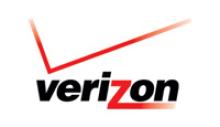When it comes to expanding access to the Internet across the US, the federal government has long looked first to the private sector, ignoring hundreds of years of experience showing that unaccountable private companies cannot be trusted to sufficiently invest in or govern essential infrastructure.
Inevitably, they price access to high and invest too little as they maxmize their profits -- thereby minimizing the profits of all other parts of the economy.
So let's take a little survey of the progress we see from these companies.
We have long railed against the Verizon ->
FairPoint fiasco in New England that left Verizon much richer at the expense of residents and businesses in rural Vermont, New Hampshire, and Maine particularly. Well,
FairPoint creditors have realized the depth of Verizon's scam and are suing Verizon for $2 billion.
Read the complaint [pdf].
According to the complaint (pdf), Verizon not only made out like a financial bandit up front, but took advantage of regulatory delays to strip mine the assets of anything of value, including core IP network components, business services, and localized billing and support assets required to support the three states. Verizon then billed out their support assistance for millions per month during the very rocky transition, during which time 911 and other services saw repeated outages, resulting in millions more in refund penalties.
Karl Bode is right to criticize the state authorities that allowed this fiasco to occur. Their inability to regulate in the public interest has hurt everyone stuck in the mess. While we can expect powerful companies like Verizon to try to game the system at every opportunity, there is no excuse for making it so easy for them.

As long as we are talking about Verizon shedding its rural investments, let's take a look at how Frontier is doing since it inherited thousands upon thousands of FiOS customers as part of its recent deal with Verizon.
 As long as we are talking about Verizon shedding its rural investments, let's take a look at how Frontier is doing since it inherited thousands upon thousands of FiOS customers as part of its recent deal with Verizon.
As long as we are talking about Verizon shedding its rural investments, let's take a look at how Frontier is doing since it inherited thousands upon thousands of FiOS customers as part of its recent deal with Verizon.



